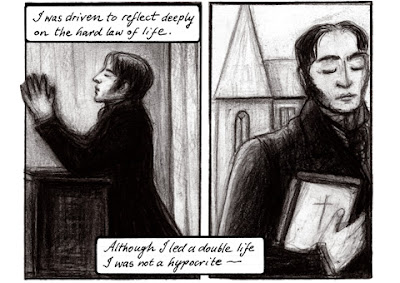Leadership Lessons From Dr. Jekyll and Mr. Hyde
For years many scholars largely dismissed Robert Louis Stevenson's work as either horror or children's literature. But intellectuals now cast the author in a different light. If you read The Strange Case of Dr. Jekyll and Mr. Hyde, there are some solid lessons buried inside this dark story. Stevenson developed much wisdom during his short life.
The Strange Case of Dr. Jekyll and Mr. Hyde follows an investigation—led by a man known as Mr. Utterson—regarding the strange relationship between the esteemed Dr. Jekyll and the violent lunatic, Mr. Hyde. Not only is Mr. Hyde set to inherit Dr. Jekyll's money, but Dr. Jekyll spends a great deal of time rationalizing this odd friendship. As it turns out Mr. Hyde and Dr. Jekyll are actually one in the same; a science experiment, gone wrong. Lessons to be garner from the story include:
- Notice Bad Vibes. When Mr. Utterson—the boring lawyer, who tells this tale—first witnesses evil Mr. Hyde, he knows something is terribly awry. As he explains to Mr. Enfield, "there is something wrong with his appearance; something displeasing, something downright detestable. I never saw a man I so disliked, and yet I scarce know why. I can make no hand of it." Takeaway: Get a bad feeling about someone? Trust it or at least try to find out if that person is a up to something.
- Be Wary When A Friend's Behavior Does a 180. Previously, Dr. Jekyll was the man about town. He made tons of money, but was charitable. Friends surrounded Dr. Jekyll constantly. Even when Dr. Jekyll was confronted by Mr. Utterson he handled the inquiries with ease and kindness. Then, he gets ultra reclusive out of nowhere. Guests are refused. Dinner parties are not happening. When Mr. Utterson randomly runs into him, Dr. Jekyll is a shell of a human. Takeaway: When your friend starts acting out of character, do all you can to get to the bottom of it.
- People are Complex. Upon finding Dr. Jekyll's written record of the events, the reader learns that he is a firm believer in "man's dual nature." This means that people are not solely "good" or "bad," instead, they're a combination of sorts. Stevenson puts it well: "I was in no sense a hypocrite; both sides of me were in dead earnest; I was no more myself when I laid aside restraint and plunged in shame." In short, Dr. Jekyll speculated that individuals are comprised of two parts that struggle endlessly with each other. Takeaway: Live in harmony with your flaws. Become more authentic.


Comments
Post a Comment